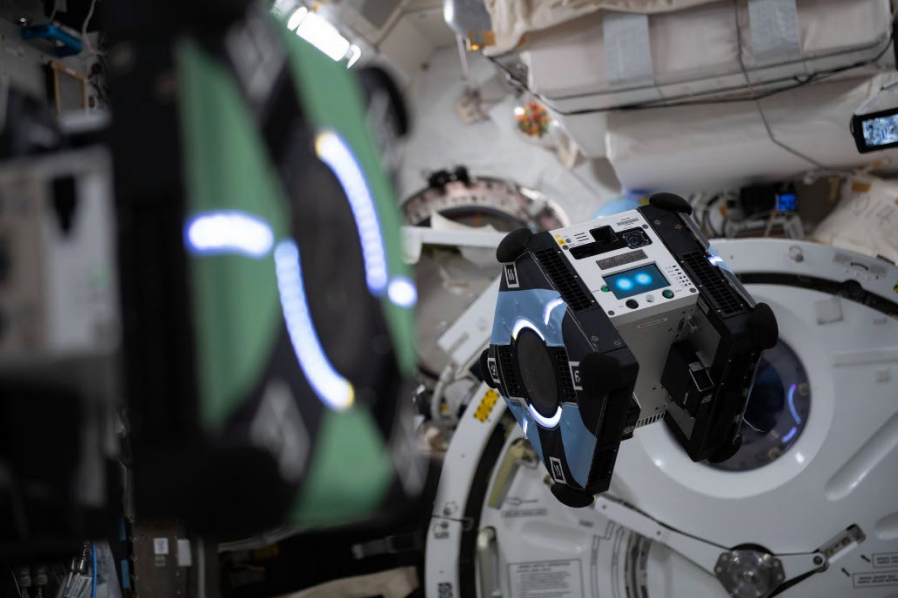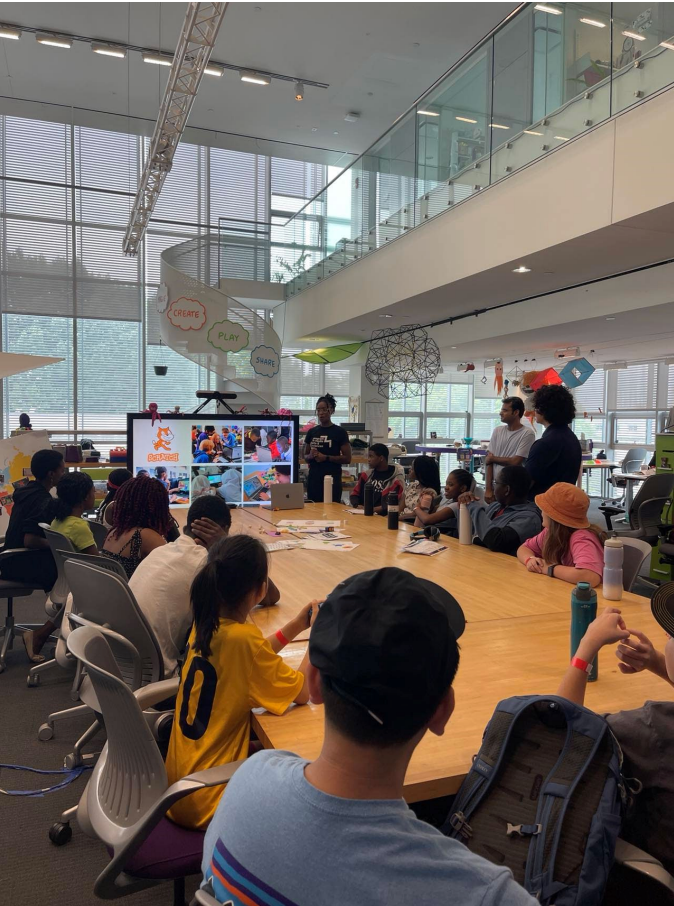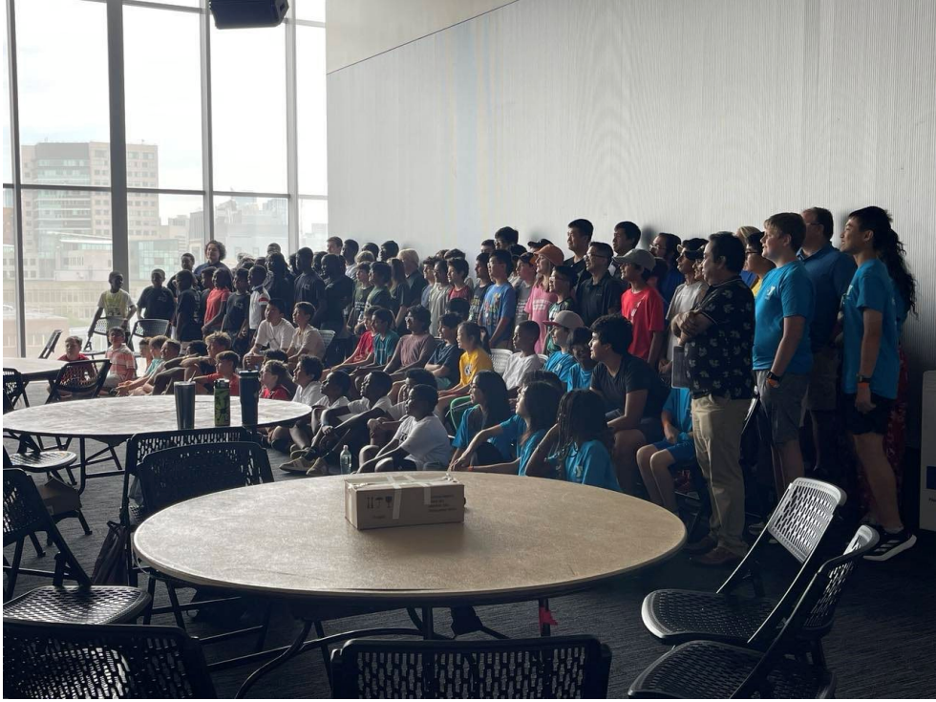Paying it forward...
In this blog, I am going to change it up a bit. I want to share my experience as a facilitator of our outreach program with middle school students in one of my lab’s projects. With no expectations in mind, I joined the program, only to come out of it with my goal of championing quality education and mentorship being reinforced.
Within my lab, the Zero Robotics team is the group that promotes early involvement and education, trying to get kids to learn coding and understand how it enables space technology. Throughout the summer, the Zero Robotics team organizes a competition amongst middle school students from the West Coast to the East Coast where they develop a program to automate space debris collection. The program is then sent to the International Space Station and tested on a robotic astronaut assistant named Astrobee. The team with the code that collects the most debris in the least energy consumed wins the summer-long competition.

Astrobee in the International Space Station (ISS). Taken from nasa.gov
Last Thursday, the kids had an opportunity to visit MIT and our lab. For the whole day, we, the members of the lab, are tasked to make sure that everyone is welcomed and learns a thing or two about being an engineer in space. Although I was not part of the project, I volunteered to help as I have experience running such events at Duke for the Filipino Students Association (Duke Pamilya).
In the morning, I took the students on a tour at MIT. Of course, I squeezed all the facts I’ve learned in the past 7 weeks. I got to have informal conversations with the kids and their chaperones. I was hosting two groups—one of which came from Haiti, so I had to speak slowly and wait for their chaperone to translate from English to Haitian Creole.
Honestly, I was hesitant about volunteering since it was going to be my first time dealing with children at this age, and my American friends cautioned me about their behavior. They were wrong. I saw kids who see the world for what it is and are motivated to change it for the better. I remember one kid saying how he had already made over 200 programs in Scratch, a beginner-friendly block-style programming language.

The Lifelong Kindergarten Research Group who pioneered Scratch is explaining the recent updates made to enrich the programming experience.
In the afternoon, I helped facilitate a reflection activity where the students got to draw the future, they wanted for themselves. Here are the two most memorable responses I’ve heard.
I want to learn how to build sustainable housing to save the world. I want to go to MIT and take up Architecture and Urban Planning.
I want to end world pollution and racism and promote world peace.
Take note that these kids are only 11-13 years old. When I was at that age, I don’t remember thinking of a career for people around me and most importantly, I was completely unaware of social and global issues. I then realized how bright our future is with these children who are already planning on addressing the issues humanity is facing today.
I should count myself lucky. I was not expecting such interactions with these children. They are fun to be with. I could tell they appreciated my listening to their aspirations and thoughts about their future careers. Although I left the venue physically and mentally tired, I felt intense relief, having been inspired by the youth’s aspirations of creating a better world.
 ~150 students attended the Outreach Field Day of the Zero Robotics Team
~150 students attended the Outreach Field Day of the Zero Robotics Team
This experience solidified my career goals of becoming a professor and touching the lives of many by giving them the educational opportunities I’ve had growing up. To me, this will be my way of paying it forward.